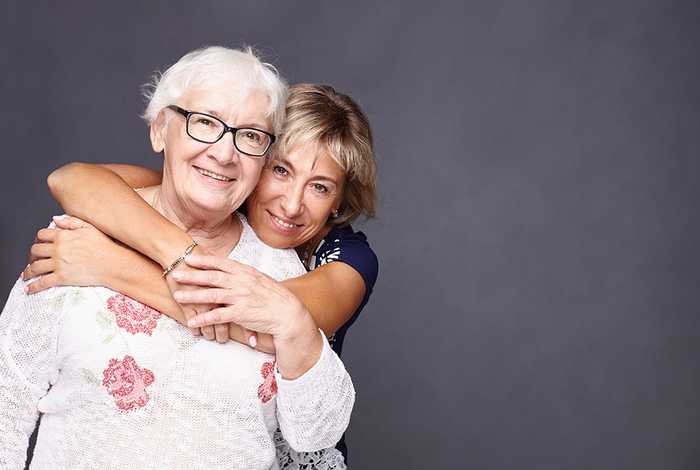Posted by Janine Griffiths
Caring for your elderly parents at home: Our top tips

Caring for your elderly parents at home is a reality for millions of families across the UK. In fact, research by Age UK, showed that 3.3 million adults aged 40-60 already currently care for or support at least one older parent at home.
While this can be an incredibly rewarding experience, it can also be challenging if you are navigating the complexities of home care for the first time.
Whether it’s managing daily routines, ensuring their health and safety, or simply providing emotional support, there’s much to consider.
In this ultimate guide, we aim to offer practical advice, tips, and resources to help you provide the best care possible. At Autumna, we understand that every family’s situation is unique, and we’re here to support you every step of the way.
Balancing work and caring for your elderly parents at home
Trying to stay on top of your career while caring for your elderly parents at home can sometimes feel like you’re working two full-time jobs—because, in many ways, you are. The pressure to do well at work while also being emotionally and physically present for your parent can be intense. And yet, this is the reality for so many unpaid carers across the UK.
If you're feeling stretched thin, the first step is to recognise that you’re not failing—you’re simply human. Being open about your caregiving responsibilities with your employer can lead to more flexibility. Many companies now offer carers’ leave, flexible working hours, or the option to work from home. It’s worth checking your rights under the Carer’s Leave Act or speaking to your HR department about what support is available.
Also, remember that small changes can make a big difference. Batch-cooking meals for the week, setting shared calendars with siblings, or using reminders and alarms for medications can help free up your mental space. And if you're caring for your elderly parents at home while managing work, don’t be afraid to reach out to others in the same boat. Carer forums and online communities can be a powerful source of encouragement, practical tips, and solidarity.
You’re doing something extraordinary—but that doesn’t mean you have to do it all alone.
Signs your parent may no longer be safe at home alone
Caring for your elderly parents at home often starts with small adjustments—a grab rail in the bathroom, an extra helping hand with meals. But over time, their needs can change, sometimes gradually, sometimes suddenly. Knowing when it's no longer safe for them to be alone is a crucial part of the journey, and one that often comes with tough emotions.
Start by trusting your gut. Are they forgetting to turn off the hob? Have they started missing medication doses? Are they more withdrawn, or showing signs of confusion? Unexplained bruises, unopened post, or spoiled food in the fridge can all be signs that something’s not quite right.
It's not about being critical or overbearing—it's about being observant and compassionate. Even small slips in judgment or mobility can snowball into bigger risks. This doesn’t mean you’ve failed in caring for your elderly parents at home—it means you’re paying attention.
Having regular check-ins and reassessing their needs through a Care Act Assessment can provide reassurance and clarity. And if you’re noticing significant changes, it might be time to consider additional support—whether that’s live-in help, professional home care, or a move into a care setting that better matches their current needs.
Best practice when caring for your elderly parents at home
Caring for your elderly parents at home for the first time can feel overwhelming. With so many things to consider—from managing their health to ensuring their safety—it’s understandable to feel unsure or even confused about where to begin. However, you don’t have to face it alone.
In this section, we’ll walk you through some best practices to help you provide the care your parents need, while also giving you the confidence and support to manage this new chapter with compassion and ease.
Get their needs assessed
A Care Act Assessment is a valuable step in understanding the level of care your loved one needs. By contacting social services at your local authority, you can arrange a care needs assessment that provides a clear picture of your loved one's physical, emotional, and medical requirements.
This assessment is crucial, as it helps identify the support they need, including any assistance with daily tasks, medication, and potential eligibility for financial help. It’s a compassionate way to ensure that you and any other caregivers that you bring in are able to provide them with personalised care. It also means that should you ever need to bring in additional carers, you will at least be aware of whether you are likely to be able to obtain any financial help for that.
Safeguard their environment
Once you have a much more thorough understanding of your parent’s care needs, the next step is to assess whether their current home is suitable.
Consider whether the property they are in needs any adaptations and whether they will be able to continue living safely and independently in their home.
You should also determine whether a personal elderly alarm is needed to improve their safety.
Seniors often need help with household chores and cooking in order to maintain a clean and hygienic environment. Assisting with cleaning, cooking, and laundry can go a long way to helping them to maintain their independence and living environment.
Set a consistent schedule
Creating a consistent and structured routine is key to making sure that any personal care and medical needs they have are provided for them on time.
Establishing a regular sleep and morning routine promotes adequate rest. It's also important to consider the most suitable times for bathing, personal care, and household tasks.
Not only does this provide a degree of predictability and reassurance for your loved one, it also makes it easier for you to plan your schedule around them as well.
Help with bills and admin
It is also a good idea to take note of whether any assistance is needed with managing their finances, bills and other admin tasks. This is especially important if your loved one is experiencing cognitive decline, such as forgetfulness or confusion.
You may need to contact the various organisations that they interact with or gain power of attorney if you think this is necessary.
Food and nutrition
Health and nutrition are among the most important considerations when it comes to caring for your elderly parents at home. It is always best to consult with their doctor or care team where possible in order to ensure they have a nutritious, balanced diet.
They should also be well hydrated and avoid eating a diet high in salt and processed foods. You can either prepare the meals on their behalf or use a meal delivery service for seniors such as Tiptree Meals, Wiltshire Farm Foods or I Care.
Exercise
Regular physical activity is essential for maintaining your elderly parent’s health and wellbeing. Even gentle exercise can help improve mobility, balance, and strength, reducing the risk of falls and promoting independence.
Encouraging activities like light stretching, or seated exercises can also boost their mood and energy levels. Daily walks can also help to improve mobility, with research showing that regular walks have been associated with better balance, improved wellbeing and reduced falls. The findings also show that walking has been associated with improved psychosocial function, a higher quality of life and cognitive development.
Of course, it’s important to tailor exercises to their abilities, so consult with their doctor or a physiotherapist to find the best options. Not only will regular movement benefit their physical health, but it can also help them feel more engaged and positive about life.
Social engagement
Staying socially active is just as important as physical health for elderly parents. Loneliness and isolation can have a significant impact on mental wellbeing, so finding ways to keep them connected is vital.
Whether it’s scheduling regular visits from family and friends, encouraging them to join a local club, or participating in virtual events, social interaction can brighten their day and help them maintain a sense of purpose. Even simple things like a phone call or video chat can make a big difference in their emotional health and overall happiness.
Moving and handling
Helping your elderly parents move around the home can be challenging, especially if they have limited mobility. It’s crucial to use safe moving and handling techniques to avoid injuries for both you and your loved one.
When assisting with transfers, such as from their bed to a chair for example, make sure to use proper body mechanics, or consider using equipment like hoists or grab rails to make the process easier and safer. If in doubt, seek advice from a healthcare professional or occupational therapist who can recommend safe practices and equipment to support their mobility while maintaining their dignity.
How to talk to siblings about caring for your elderly parents at home
Family dynamics can be tricky at the best of times, and when the topic is caring for your elderly parents at home, emotions can run especially high. Maybe you're the one living nearby and handling the daily tasks, while a sibling further away doesn’t quite understand the reality on the ground. Or perhaps everyone wants to help—but no one agrees on how.
Start with this: you’re on the same team. Even if opinions differ, everyone ultimately wants what’s best for your parent. Arrange a family meeting—whether in person or on a video call—and talk openly about what your parent needs, what you’re realistically able to provide, and where help is falling short.
Use clear, non-judgmental language. “I’ve been feeling overwhelmed” is easier to hear than “You’re not doing enough.” You can also discuss practical ways to divide responsibilities: maybe someone can handle finances or paperwork remotely, while another manages appointments or groceries.
Having a written care plan that you update together can reduce confusion and help you all stay aligned. If things become especially tense, consider involving a neutral third party, like a social worker, GP, or family mediator, to help guide the conversation.
Remember, caring for your elderly parents at home is a shared journey. The more honest and collaborative the dialogue, the more supported everyone will feel, including your parent.
How to tell if you need extra help as a carer
If you are feeling stressed, or overwhelmed with your caregiving duties, it is time to ask for help.
Similarly, if you find yourself making too many mistakes or it is negatively affecting your social life, relationships, or personal wellbeing it may be another sign that additional support is needed. Balancing caregiving with your own life is essential, and seeking extra help can provide relief and ensure your loved one gets the best care possible.
Some of your options include temporary respite care, home care, live-in care, or if your parents' care needs are extensive, then it may be time to consider a nursing or care home. The option that is best for your family depends on the extent of their care needs.
What support is available to carers?
Caring for a loved one can be demanding, but thankfully, there are several resources available in the UK to support carers. The first step is to contact your local authority to arrange a Carer’s Assessment, which can help identify your needs and provide access to practical support. This could include respite care, which offers temporary relief for you if you are the primary caregiver or help with household tasks and personal care for your loved one.
Carers may also be eligible for financial support through Carer’s Allowance or other benefits, which can ease some of the financial strain that comes with caregiving. Additionally, many charities and organisations, such as Carers UK and The Carer’s Trust, provide valuable advice, advocacy, and emotional support through helplines, support groups, and online communities.
It’s important to remember that as a carer, you don’t have to face these challenges alone. There are numerous services available to help you manage your responsibilities while maintaining your own health and wellbeing.
Where to go if you need extra support?
If your caregiving duties ever do become overwhelming and you find yourself thinking about enlisting the help of a care provider, then Autumna can help you find the right resources.
All you have to do is head over to our search directory, select the type of care you need and type in your location. You will then be able to view a list of care providers in your chosen area.
You can also use our Shortlist Tool and answer a few questions in order to view a more personalised list of care providers. Alternatively, you can speak to our friendly and knowledgeable team of advisors on 01892 335 330 that can provide you with further assistance.
Receive a Free Home Care Shortlist!
Let our expert team of advisers get your search off to a great start.
Tell us a little about your needs and we'll send you a bespoke shortlist of home care providers! Click the button below to begin, it takes just a few minutes.
Other articles to read
From the blog

Older Persons Care Advice
How to talk to your parents about care options
October 2nd, 2025
Learn how to talk to your parents about care options with compassion. Explore choices together and plan for the future with dignity and respect.

Older Persons Care Advice
Guide to empowering and promoting independence in older age
September 30th, 2025
Read our practical guidance for families on empowering and promoting independence in older age, helping loved ones stay confident and in control.

Older Persons Care Advice
Ultimate guide to jointly owned property and care home fees
September 26th, 2025
Understand jointly owned property and care home fees, how assessments work, and steps to protect your finances and plan ahead with confidence.
Frequently Asked Questions
A Care Act Assessment is conducted by your local authority to identify your loved one’s physical, emotional, and medical needs. It helps determine the type of support they require, including assistance with daily tasks, medication, and eligibility for financial support. This assessment ensures that your loved one receives the appropriate care based on their specific needs.
You’ll need to think about various aspects, including their health, safety, daily routines, and emotional wellbeing. Creating a consistent schedule, safeguarding their home environment, encouraging social engagement, and ensuring proper nutrition are all important factors to consider when providing care at home.
If caregiving duties are causing you stress, impacting your social life, or becoming overwhelming, it may be time to seek additional support. Whether it’s through respite care, home care services, or live-in care, extra help can relieve the burden and ensure your loved one receives the best care possible.
Carers may be eligible for financial assistance through Carer’s Allowance and other benefits. You can also access practical support through a Carer’s Assessment provided by your local authority, which can help with tasks such as respite care and household assistance.






